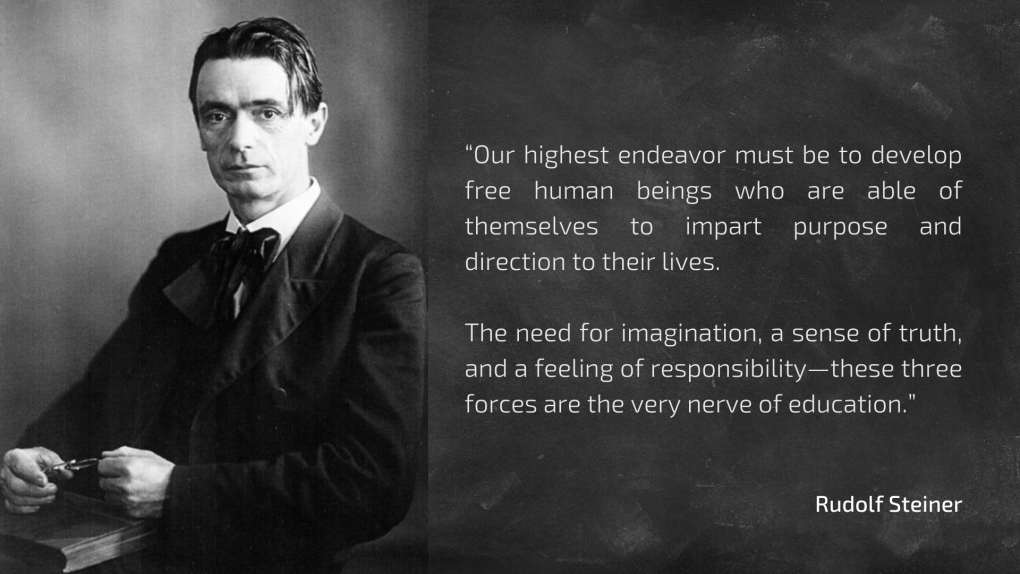What is anthroposophy?
The Steiner Waldorf approach to education is based on Rudolf Steiner’s educational insights, specifically those that relate to child development. These form one aspect of what Steiner called ‘anthroposophy’, literally, ‘human wisdom’, or ‘knowledge of the human being’ .
These ideas are contained in Steiner’s approximately 4,000 lectures and some 50 written works. Many of these can be accessed on line at the Rudolf Steiner archive at www.rsarchive.org.
Anthroposophy is a developing body of research and not a belief system, indeed Steiner was at pains to make sure that people scrutinized his ideas and put them to the test; he did not want them simply to be adopted or ‘believed’, but he did invite people to engage with them. In his lectures on education he gave many indications for suitable subject matter and approaches to teaching for different ages but always stressed that teachers must be free to interpret these indications in their own way.
- Education (1,200 Waldorf Steiner schools and some 2,000 Kindergartens)
- Agriculture (biodynamic / Demeter)
- Architecture (Goetheanum, listed amongst the most significant modern works)
- Medicine (including Weleda, counselling, massage, therapeutic speech, curative eurythmy, psychotherapy)
- Ethical finance (Triodos Bank, The Godparents Anthroposophical Training Fund, The Hermes Trust)
- The Arts
- Special Needs (Camphill, Garvald, Tiphereth)
- Movement (Bothmer and Eurythmy)
- Modern technology (flowforms and water technology, for example).
Steiner schools, including Edinburgh Steiner School, do not teach anthroposophy to the children and young people. Indeed some would argue that it cannot be taught in any conventional sense. We endeavour to work ‘out of anthroposophy’. The implications of this can best be understood by reading the Principles and Aspirations of the European Council for Steiner Waldorf Education, of which SWSF is a member: www.ecswe.org.
These principles are prefaced by the statement:
Steiner Waldorf educators study and research aspects of anthroposphy in order to inform and develop their work within the schools and places of learning. The philosophical and methodological approaches that underlie anthroposophy are regarded as tools for personal and profession al development; they are not taught within the school, either as a subject or a belief.”

Further reading:
